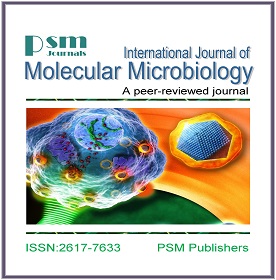Biodegradation of Combine Tributyltin and Diphenyltin by Bacteria in Freshwater Sediment
Keywords:
Tributyltin (TBT), Diphenyltin, Bacteria, Biodegradation, Freshwater sediments.Abstract
This study investigated the inherent capability of bacterial isolates from River Benue to resist and degrade the combination of tributyltin (TBT) and diphenyltin (DPT) in aerobic conditions. TBT and DPT have been used as active ingredients in the formulation of biocides, fungicides, herbicides, and antifouling paints. Freshwater sediments were collected from 5 (five) different points of River Benue. The sediment samples were homogenized and allocated into 3 treatments labeled A, B, and C. Treatments A and B were amended with NPK, treatment B was heat treated, and treatment C was left unaltered. Treatment options were stirred manually once a day for proper aeration and were cultured using the pour plate method on days 0, 14, and 24, 42 respectively. Physiochemical analysis of freshwater sediments was conducted using the standard method. Bacterial strains were identified based on morphological and biochemical characteristics. The incidence of bacterial isolates was Staphylococcus spp. (10.53%), Pseudomonas spp. (42.11%), Shigella spp. (5.30%), Escherichia coli (10.53%), and Bacillus spp (31.58%). The results from this study showed that Bacillus spp. and Pseudomonas spp. were able to survive in the presence of TBT and DPT combined till day 42 having a percentage prevalence of 31.58% and 42.11% respectively. Findings from this study suggest that Pseudomonas spp. and Bacillus spp. hold significant potential for bioremediation of organotin-contaminated sites.
Downloads
Published
How to Cite
Issue
Section
License
Copyright (c) 2024 PSM

This work is licensed under a Creative Commons Attribution-NonCommercial 4.0 International License.




